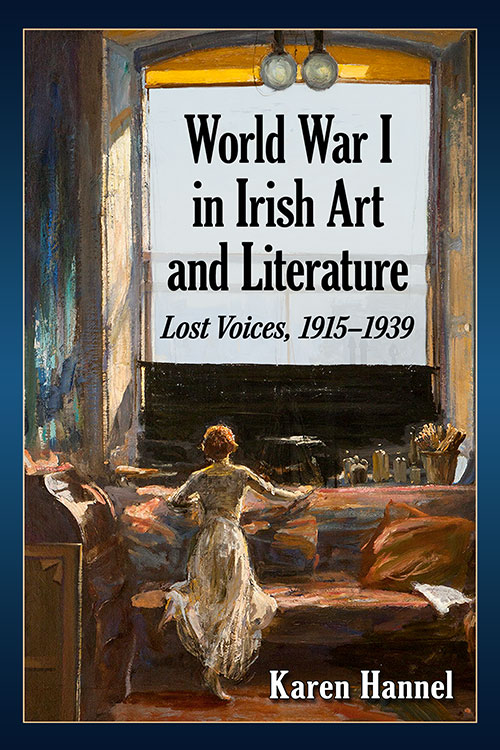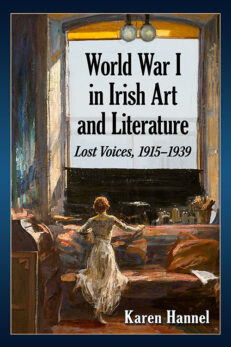World War I in Irish Art and Literature
Lost Voices, 1915–1939
$55.00 Original price was: $55.00.$27.99Current price is: $27.99.
In stock
About the Book
Focusing on Ireland’s literary and artistic response to World War I, this book explores works from a range of perspectives that intervened in Irish political and cultural discourse. Works such as Patrick MacGill’s novel The Amateur Army (1915), John Lavery’s Daylight Raid from my Studio (1917) and Margaret Barrington’s My Cousin Justin (1939) show how the war was fully examined by Irish authors—but was disregarded with the beginning of World War II. Diverse voices challenged prevailing notions of Irish national identity, from the bourgeois cosmopolitanism of Tom Kettle to the working-class internationalism of Patrick MacGill to Pamela Hinkson’s cynicism about imperial patriarchy.
About the Author(s)
Karen Hannel is the founding chair of the Department of Interdisciplinary Studies and the creator of the first Bachelor of Arts degree in Veteran Studies at Saint Leo University in St. Leo, Florida.
Bibliographic Details
Karen Hannel
Format: softcover (6 x 9)
Pages: 206
Bibliographic Info: 15 photos, notes, bibliography, index
Copyright Date: 2022
pISBN: 978-1-4766-7542-8
eISBN: 978-1-4766-4737-1
Imprint: McFarland
Table of Contents
List of Illustrations vii
Preface 1
Introduction 7
1. The Great War as Transnational Project: Tom Kettle, The Ways of War, and Irish International Nationalism 39
2. The Double Bind: MacGill and O’Flaherty’s International, Working-Class Challenge to Colonial Oppression 65
3. In the No Man’s Land of Postcolonialism: Artistic Depictions of the Slow Extinction of the Anglo-Irish Protestant Ascendancy 89
4. Keeping the Home Fires Burning When the House Is Burning Down: Topsy-Turvy Gender Roles and Homosocial Alliances in Irish World War I Art and Literature 119
Epilogue. A Confluence of Dreams: Reconsidering the Birth of Ireland 147
Chapter Notes 155
Bibliography 181
Index 193
Book Reviews & Awards
• “The use of visual material alongside the attention given to often overlooked literary texts including novels and memoirs is well-judged and a valuable addition.”—Gerald Dawe, Trinity College Dublin
• “Hannel presents powerful arguments for seeing Irish identity in complex rather than monolithic terms.”—Terry Phillips, Liverpool Hope University





